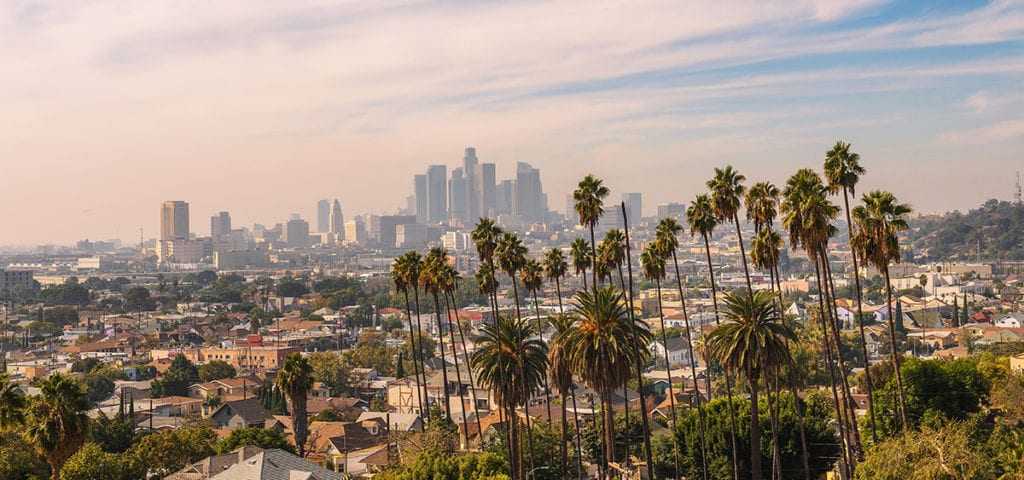New cannabis licensing and social equity recommendations from the Los Angeles Department of Cannabis Regulations are under consideration today by the City Council.
Los Angeles Considers Cannabis Licensing & Social Equity Overhaul

City skyline of Los Angeles in California during sunset with beautiful palm trees in the foreground.
Full story continued below.
Advertisement
The Los Angeles City Council is considering new cannabis licensing and social equity proposals today from the Department of Cannabis Regulation (DCR) that stand to overhaul nearly the entire licensing system.
Firstly, DCR’s proposals would grant temporary approval to all social equity applicants in the city. The recommendations would also permit cannabis licensees and applicants to relocate within the city throughout the licensing process (which is currently not allowed) and would limit new cannabis retail and delivery licenses to only social equity applicants until 2025. Lastly, the proposals would make adjustments to counteract potentially “predatory practices” in the social equity program.
Marijuana Business Daily reports that the recommendations have drawn mixed reactions: some have lauded the plan as finally following through on the city’s social equity commitments, while critics argue the move would leave out legacy operators who are still awaiting licenses but don’t qualify as a social equity applicant.
“I think it’s fantastic,” said cannabis industry consultant Lynne Lyman.
“It’s like this big omnibus fix for the whole ordinance, and it really re-creates the social equity program to make it work, because it has not worked.” — Lyman, via MJBizDaily
Cannabis attorney Michael Chernis, however, said in the report that while he supports the social equity program, the plan would “cut off any chance for anyone but a social equity applicant to get a retail license, a non-storefront retail license or, as far as I can tell, any license for five years.”
Los Angeles is currently facing a lawsuit from the Social Equity and Workers Association over the city’s first run of social equity licensing last September, which plaintiffs argue was an unbalanced, first-come-first-served affair. The lawsuit alleges that some hopeful licensees were able to access the applications ahead of time, which gave them an unfair advantage.
Get daily news insights in your inbox. Subscribe
End